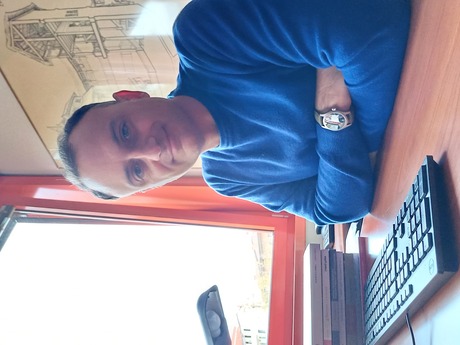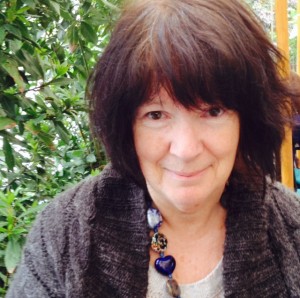Studying at the University of Verona
Here you can find information on the organisational aspects of the Programme, lecture timetables, learning activities and useful contact details for your time at the University, from enrolment to graduation.
Academic calendar
The academic calendar shows the deadlines and scheduled events that are relevant to students, teaching and technical-administrative staff of the University. Public holidays and University closures are also indicated. The academic year normally begins on 1 October each year and ends on 30 September of the following year.
Course calendar
The Academic Calendar sets out the degree programme lecture and exam timetables, as well as the relevant university closure dates..
| Period | From | To |
|---|---|---|
| Annuale (Lingue e letterature straniere) | Sep 25, 2023 | May 25, 2024 |
| I semestre (Lingue e letterature straniere) | Sep 25, 2023 | Dec 22, 2023 |
| II semestre (Lingue e letterature straniere) | Feb 19, 2024 | May 25, 2024 |
| Session | From | To |
|---|---|---|
| ESAMI LINGUE - sessione invernale | Jan 8, 2024 | Feb 10, 2024 |
| ESAMI LINGUE - sessione estiva | May 27, 2024 | Jul 20, 2024 |
| ESAMI LINGUE - sessione autunnale | Aug 26, 2024 | Sep 21, 2024 |
| Session | From | To |
|---|---|---|
| LAUREE LINGUE - sessione autunnale (a.a. 2022-2023) | Nov 6, 2023 | Nov 11, 2023 |
| LAUREE LINGUE - sessione straordinaria (a.a. 2022-2023) | Apr 2, 2024 | Apr 8, 2024 |
| LAUREE LINGUE - sessione estiva (a.a. 2023-2024) | Jul 8, 2024 | Jul 13, 2024 |
| Period | From | To |
|---|---|---|
| Festa di Ognissanti | Nov 1, 2023 | Nov 1, 2023 |
| Festa dell'Immacolata | Dec 8, 2023 | Dec 8, 2023 |
| LINGUE - Vacanze di Natale | Dec 23, 2023 | Jan 7, 2024 |
| Vacanze di Pasqua | Mar 30, 2024 | Apr 1, 2024 |
| Festa della Liberazione | Apr 25, 2024 | Apr 25, 2024 |
| Festa del Lavoro | May 1, 2024 | May 1, 2024 |
| Festa del Santo Patrono | May 21, 2024 | May 21, 2024 |
| Festa della Repubblica | Jun 2, 2024 | Jun 2, 2024 |
| Vacanze estive | Aug 12, 2024 | Aug 17, 2024 |
Exam calendar
Exam dates and rounds are managed by the relevant Foreign Languages and Literatures Teaching and Student Services Unit.
To view all the exam sessions available, please use the Exam dashboard on ESSE3.
If you forgot your login details or have problems logging in, please contact the relevant IT HelpDesk, or check the login details recovery web page.
Should you have any doubts or questions, please check the Enrollment FAQs
Academic staff
 federica.barboni@univr.it
federica.barboni@univr.it
 francesca.bazzani@univr.it
francesca.bazzani@univr.it
 benedetta.binacchi@univr.it
benedetta.binacchi@univr.it
 elisa.dallarosa@univr.it
elisa.dallarosa@univr.it
 wenwen.huang@univr.it
wenwen.huang@univr.it
 lorenzo.loiudice@univr.it
lorenzo.loiudice@univr.it
 beatrice.melodiafesta@univr.it
beatrice.melodiafesta@univr.it
Morbiato Giacomo
 giacomo.morbiato@univr.it
giacomo.morbiato@univr.it
 neliana.orlandi@univr.it
neliana.orlandi@univr.it
 sara.paolini@univr.it
sara.paolini@univr.it
Study Plan
The Study Plan includes all modules, teaching and learning activities that each student will need to undertake during their time at the University.
Please select your Study Plan based on your enrollment year.
1° Year
| Modules | Credits | TAF | SSD |
|---|
1st foreign language2nd foreign language1st foreign literature and cultureGerman literature and culture 1
2nd foreign literature and cultureGerman literature and culture 1
2° Year It will be activated in the A.Y. 2024/2025
| Modules | Credits | TAF | SSD |
|---|
1st foreign language2nd foreign language1st foreign literature and culture or a related courseAnglophone literatures and cultures
English literature and culture 2
French literature and culture 2
German literature and culture 2
Spanish literature and culture 2
2nd foreign literature and culture or a related courseAnglophone literatures and cultures
English literature and culture 2
French literature and culture 2
German literature and culture 2
Spanish literature and culture 2
Geography of communication and international trade
Italian literature and culture
Modern and Contemporary Economic History
Theory and Techniques of communication
3° Year It will be activated in the A.Y. 2025/2026
| Modules | Credits | TAF | SSD |
|---|
1st foreign language2nd foreign language| Modules | Credits | TAF | SSD |
|---|
1st foreign language2nd foreign language1st foreign literature and cultureGerman literature and culture 1
2nd foreign literature and cultureGerman literature and culture 1
| Modules | Credits | TAF | SSD |
|---|
1st foreign language2nd foreign language1st foreign literature and culture or a related courseAnglophone literatures and cultures
English literature and culture 2
French literature and culture 2
German literature and culture 2
Spanish literature and culture 2
2nd foreign literature and culture or a related courseAnglophone literatures and cultures
English literature and culture 2
French literature and culture 2
German literature and culture 2
Spanish literature and culture 2
Geography of communication and international trade
Italian literature and culture
Modern and Contemporary Economic History
Theory and Techniques of communication
| Modules | Credits | TAF | SSD |
|---|
1st foreign language2nd foreign language| Modules | Credits | TAF | SSD |
|---|
Legend | Type of training activity (TTA)
TAF (Type of Educational Activity) All courses and activities are classified into different types of educational activities, indicated by a letter.
English literature and culture 1 [CInt P-Z] (2023/2024)
Teaching code
4S002903
Academic staff
Coordinator
Credits
6
Language
English
Scientific Disciplinary Sector (SSD)
L-LIN/10 - ENGLISH LITERATURE
Period
I semestre (Lingue e letterature straniere) dal Sep 25, 2023 al Dec 22, 2023.
Courses Single
Authorized
Learning objectives
The course, held in English, aims at introducing students to relevant aspects of English literature, from the Pre-Romantic to the contemporary period, through the reading of a selection of canonical texts. Primary notions about possible methodological approaches for the analysis of literary texts and genres will be imparted. Furthermore, the course will provide a sound knowledge of the English literature of the period (historical context, texts, genres, literary movements and authors) and stimulate abilities and skills for the critical analysis of texts, their discussion and analysis, in consideration of their historical, cultural, and context specificities. At the end of the course, students will be able to: - Analyse the literary texts of the syllabus discussing them in relation to their historical and cultural context; - Discuss the texts using an appropriate critical approach demonstrating the knowledge of the literary conventions of their time; - Express the acquired literary and critical knowledge demonstrating an adequate competence also in the English language.
Prerequisites and basic notions
Being a first-year exam, no preliminary skills, other than those required to enroll, are required. A sufficient competence in English, however, is advisable in order for students to understand lectures conducted in English, comprehend primary texts and scholarly work in the discipline in English, and take the exam in English.
Program
Women Writers in Modern and Contemporary Britain: Fictions of Independence? Three Voices?
MODULE 1 (C. Sassi, 12 hrs, 2 cfu)
This module will focus on Emily Brönte’s "Wuthering Heights" (1847) in the wider context of British Romanticism and the Gothic genre, and of women’s predicament in the 19th century. Special attention will be devoted to the novel’s female characters.
MODULE 1’s programme consists in three parts (see the “BIBLIOGRAPHY” section below):
A. Primary text
B. Readings
Further details on required readings, general information on bibliographical material, and exam method will be given during classes.
BIBLIOGRAPHY
A. Primary text
- Emily Brontë, "Wuthering Heights", Oxford World's Classics (latest edition)
B. Readings
- Flint, Kate. “Women writers, women's issues”. In "The Cambridge Companion to the Brontës", edited by Glen, Heather, 170-191. Cambridge: Cambridge University Press, 2007. https://www.proquest.com/docview/2137995155/89EEC884B8E4FC6PQ/8?accountid=14836
- Yukari Oda, “Emily Brontë and the Gothic: Female Characters in Wuthering Heights”,
LISA (Caen, France), 2010, p.1-19 https://journals.openedition.org/lisa/3496
B1. Further readings for non-attending students
- - Pike, Judith E. “'My name was Isabella Linton': coverture, domestic violence, and Mrs Heathcliff's narrative in Wuthering Heights”. Nineteenth-century literature, 2009, Vol.64 (3), p.347-383. https://univr.primo.exlibrisgroup.com/discovery/fulldisplay?docid=cdi_proquest_miscellaneous_1035964178&context=PC&vid=39UVR_INST:39UVR_VU1&lang=it&search_scope=MyInst_and_CI&adaptor=Primo%20Central&tab=Everything&query=any,contains,wuthering%20heights%20isabella&offset=0
MODULE 2 (C. Ragni, 24 hrs, 4 cfu)
The module aims to introduce students to two important female writers of the British twentieth century: Virginia Woolf and Angela Byatt. Through the reading of "Mrs Dalloway" (1925) and "Ragnarök" (2011), the module will focus on the writers’ characterisation of the two female protagonists and reflect on their search for balance between inner and outer worlds, between past and present and, above all, between life/love and death, in the context of the two World Wars.
MODULE 2’s programme consists in two parts (see the “BIBLIOGRAPHY” section below):
A. Primary texts
B. Readings
Further details on required readings, general information on bibliographical material, and exam method will be given during classes.
BIBLIOGRAPHY
A. Primary texts
- Virginia Woolf, "La signora Dalloway" (con testo inglese a fronte), a cura di Marisa Sestito, Venezia, Marsilio, 2012.
- Antonia S. Byatt, "Ragnarök. The End of the World" (any edition).
B. Readings
- Marisa Sestito, “Introduzione”, in Virginia Woolf, "La signora Dalloway" (con testo inglese a fronte), a cura di Marisa Sestito, Venezia, Marsilio, 2012, pp. 9-35.
- Lisbeth Larsson, “Walking in Upper-Class Westminster – Mrs Dalloway”, in Lisbeth Larsson, "Walking Virginia Woolf’s London", Palgrave Macmillan, 2017, pp. 107-38.
- Charlotte Beyer, “‘Life Was a State in Which a War Was On’: A.S. Byatt’s Portrayal of War and Norse Mythology in Ragnarok: The End of the Gods”, in Sara Buttsworth, and Maartje Abbenhuis (eds), "War, Myths, and Fairy Tale", Palgrave, 2017, pp. 195-218.
B1. Further readings for non-attending students
- David Bradshaw, “Introduction”, in Virginia Woolf, "Mrs Dalloway", Oxford, Oxford University Press, 2000, pp. ix-xlvi.
- Leanne Bibby, “Afterword: Ragnarök. The End of the World”, in Leanne Bibby, "A. S. Byatt and Intellectual Women: Fictions, Histories, Myths", Palgrave, 2022, pp. 217-24.
MODULE 1 and MODULE 2
As regards the literary and cultural context spanning from the Romantic Age to nowadays, students will refer to:
- Paul Poplawski, "English Literature in Context" (Cambridge University Press, 2017 - second edition): chapters 4, 5, 6, 7, 8.
Bibliography
Didactic methods
Lectures in English.
Supplementary teaching materials (slides, images, videos, other texts, etc.) that will be used during classes will be available for download from the MOODLE e-repository. These contents do not substitute but complement the readings listed in the “PROGRAMME > Bibliography” section above.
Teaching support:
Information and teaching materials will be uploaded in the Moodle platform. Students will be encouraged to think critically and to take active part in the class, by asking questions and engaging with the discussion topics. Teachers will be available during their office hours throughout the teaching term.
Learning assessment procedures
Oral exam. Students may be required to read and comment on passages taken from primary texts (see “PROGRAMME > Bibliography > a. Primary texts).
There will be no mid-term tests. Students will have to take with them primary texts on the day of the exam.
Evaluation criteria
Students will have to show:
1) a knowledge and critical understanding of the topics discussed in class (texts, authors, and genres) and of the wider literary and cultural context (from the Romantic Age to the present);
2) good analytical and synthetic skills with regard to the discussion of the main historical, cultural, textual, and critical topics of the module;
3) ability to use an appropriate vocabulary.
Criteria for the composition of the final grade
The final grade will be the sum of the scores obtained in module 1 (up to 10 pts) and module 2 (up to 20 pts).
Exam language
Inglese/English
Type D and Type F activities
Soft skills
Find out more about the Soft Skills courses for Univr students provided by the University's Teaching and Learning Centre: https://talc.univr.it/it/competenze-trasversali
Contamination Lab
The Contamination Lab Verona (CLab Verona) is an experiential course with modules on innovation and enterprise culture that offers the opportunity to work in teams with students from all areas to solve challenges set by companies and organisations. Upon completion of a CLab, students will be entitled to receive 6 CFU D (type credit).
Find out more: https://www.univr.it/clabverona
PLEASE NOTE: In order to be admitted to any teaching activities, including those of your choice, you must be enrolled in the academic year in which the activities in question are offered. Students who are about to graduate in the March-April sessions are therefore advised NOT to undertake extracurricular activities in the new academic year in which they are not enrolled, as these graduation sessions are valid for students enrolled in the previous academic year. Therefore, students who undertake an activity in an academic year in which they are not enrolled will not be granted CFU credits.
To discover all the teaching activities accredited by the foreign teaching college click here
Career prospects
Module/Programme news
News for students
There you will find information, resources and services useful during your time at the University (Student’s exam record, your study plan on ESSE3, Distance Learning courses, university email account, office forms, administrative procedures, etc.). You can log into MyUnivr with your GIA login details: only in this way will you be able to receive notification of all the notices from your teachers and your secretariat via email and soon also via the Univr app.
Student login and resources
Gestione carriere
Assegnazione tutore
Attività accreditate D/F
Calendario didattico dettagliato
Cambio lingua curriculare
Competenze informatiche
Competenze linguistiche (prima e seconda lingua)
Competenze linguistiche in triennale (terza lingua CFU F)
Compilazione del piano didattico
Corso di Lingua portoghese
Erasmus+ e altre esperienze all'estero
Linguistic training CLA
Presentazione dei corsi di studio e Open day
Graduation
List of theses and work experience proposals
| Stage | Research area |
|---|---|
| PROGETTO MAMBRINO Stage per bibliografia | Various topics |
Saperi minimi
Stage e tirocini
Nel piano didattico della laurea triennale in Lingue per il turismo e il commercio internazionale (L12) è previsto un periodo di stage obbligatorio (CFU 6) in organizzazioni imprenditoriali.
Le attività di stage sono finalizzate a far acquisire allo studente una conoscenza diretta in settori di particolare interesse per l’inserimento nel mondo del lavoro e per l’acquisizione di abilità professionali specifiche.
Le attività di stage sono svolte sotto la diretta responsabilità di un singolo docente presso studi professionali, enti della pubblica amministrazione, aziende accreditate dall’Ateneo veronese.
I crediti maturati in seguito ad attività di stage saranno attribuiti secondo quanto disposto nel dettaglio dal “Regolamento d’Ateneo per il riconoscimento dei crediti maturati negli stage universitari” vigente.
- Tutte le informazioni in merito agli stage per futuri studenti sono disponibili alla pagina Stage e tirocini.
- Tutte le informazioni in merito agli stage per studenti iscritti sono pubblicate in MyUnivr - come fare per - stage e tirocini.
- Tutte le informazioni in merito agli stage per le aziende sono disponili alla pagina Stage e tirocini per azienze.
Ulteriori informazioni al seguente link https://www.univr.it/it/i-nostri-servizi/gestione-carriere-studenti-lingue-e-letterature-straniere/stage-e-tirocini-lingue-e-letterature-straniere

 +39 045802 8409
+39 045802 8409



























































